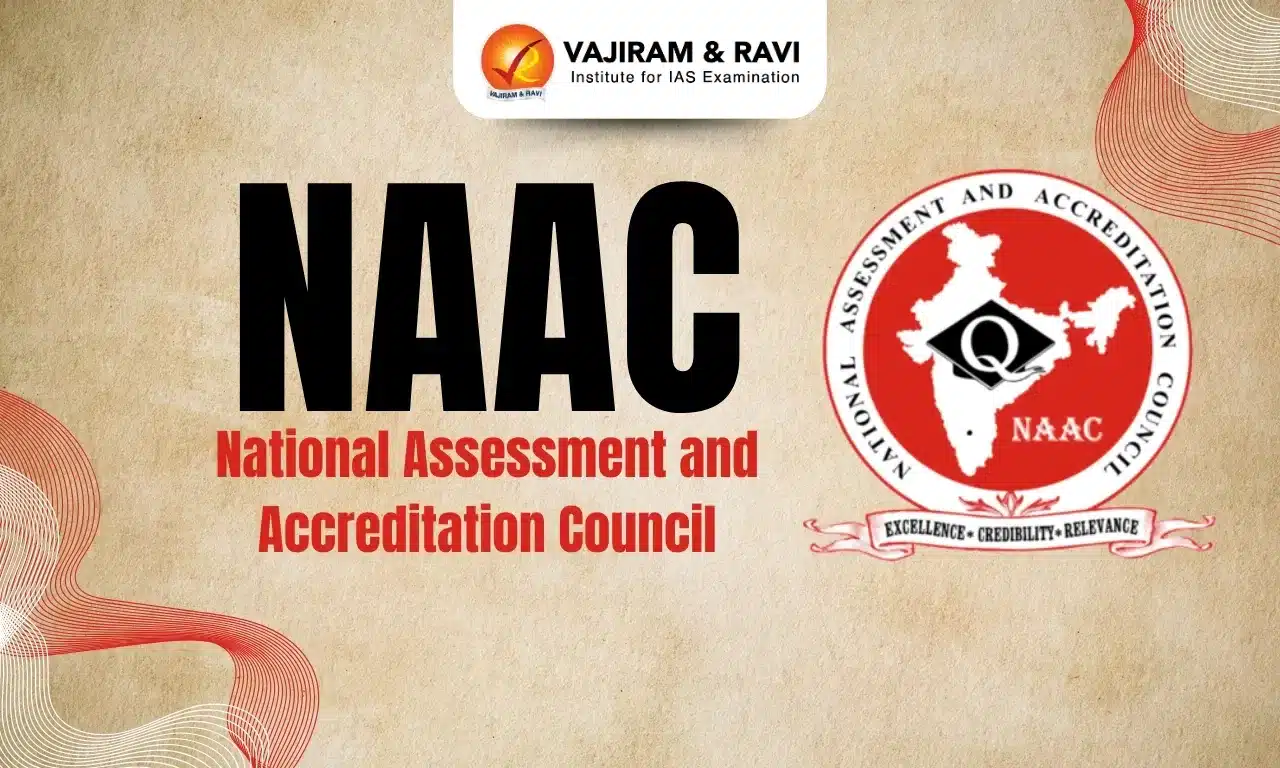National Assessment and Accreditation Council Latest News
National Assessment and Accreditation Council (NAAC) recently announced an immediate halt to physical inspections of colleges.
About National Assessment and Accreditation Council (NAAC)
- It was established in 1994 as an autonomous institution of the University Grants Commission (UGC).
- Its primary objective is to ensure and enhance the quality of higher education through a rigorous accreditation process.
- It conducts assessment and accreditation of Higher Educational Institutions (HEI) such as colleges, universities or other recognised institutions to derive an understanding of the ‘Quality Status’ of the institution.
- NAAC evaluates institutions based on various parameters such as curricular aspects, teaching-learning processes, infrastructure, governance, and innovation.
- The NAAC functions through its General Council (GC) and Executive Committee (EC), comprising educational administrators, policymakers, and senior academicians from a cross-section of the Indian higher education system.
- The Chairperson of the UGC is the President of the GC of the NAAC; the Chairperson of the EC is an eminent academician nominated by the President of the GC (NAAC).
- At present the Assessment and Accreditation by NAAC is done on a voluntary basis.
- Headquarters: Bengaluru
National Assessment and Accreditation Council FAQs
Q1. What does the National Assessment and Accreditation Council do?
Ans. It evaluates and accredits higher education institutions (HEIs) based on quality standards.
Q2. Which NAAC grade is the highest?
Ans. The highest NAAC grade is A++.
Q3. Who funds NAAC?
Ans. NAAC is primarily funded by the University Grants Commission (UGC), which operates under the Ministry of Education, Government of India.
Source: TOI
Last updated on June, 2025
→ UPSC Notification 2025 was released on 22nd January 2025.
→ UPSC Prelims Result 2025 is out now for the CSE held on 25 May 2025.
→ UPSC Prelims Question Paper 2025 and Unofficial Prelims Answer Key 2025 are available now.
→ UPSC Calendar 2026 is released on 15th May, 2025.
→ The UPSC Vacancy 2025 were released 1129, out of which 979 were for UPSC CSE and remaining 150 are for UPSC IFoS.
→ UPSC Mains 2025 will be conducted on 22nd August 2025.
→ UPSC Prelims 2026 will be conducted on 24th May, 2026 & UPSC Mains 2026 will be conducted on 21st August 2026.
→ The UPSC Selection Process is of 3 stages-Prelims, Mains and Interview.
→ UPSC Result 2024 is released with latest UPSC Marksheet 2024. Check Now!
→ UPSC Toppers List 2024 is released now. Shakti Dubey is UPSC AIR 1 2024 Topper.
→ Also check Best IAS Coaching in Delhi
























